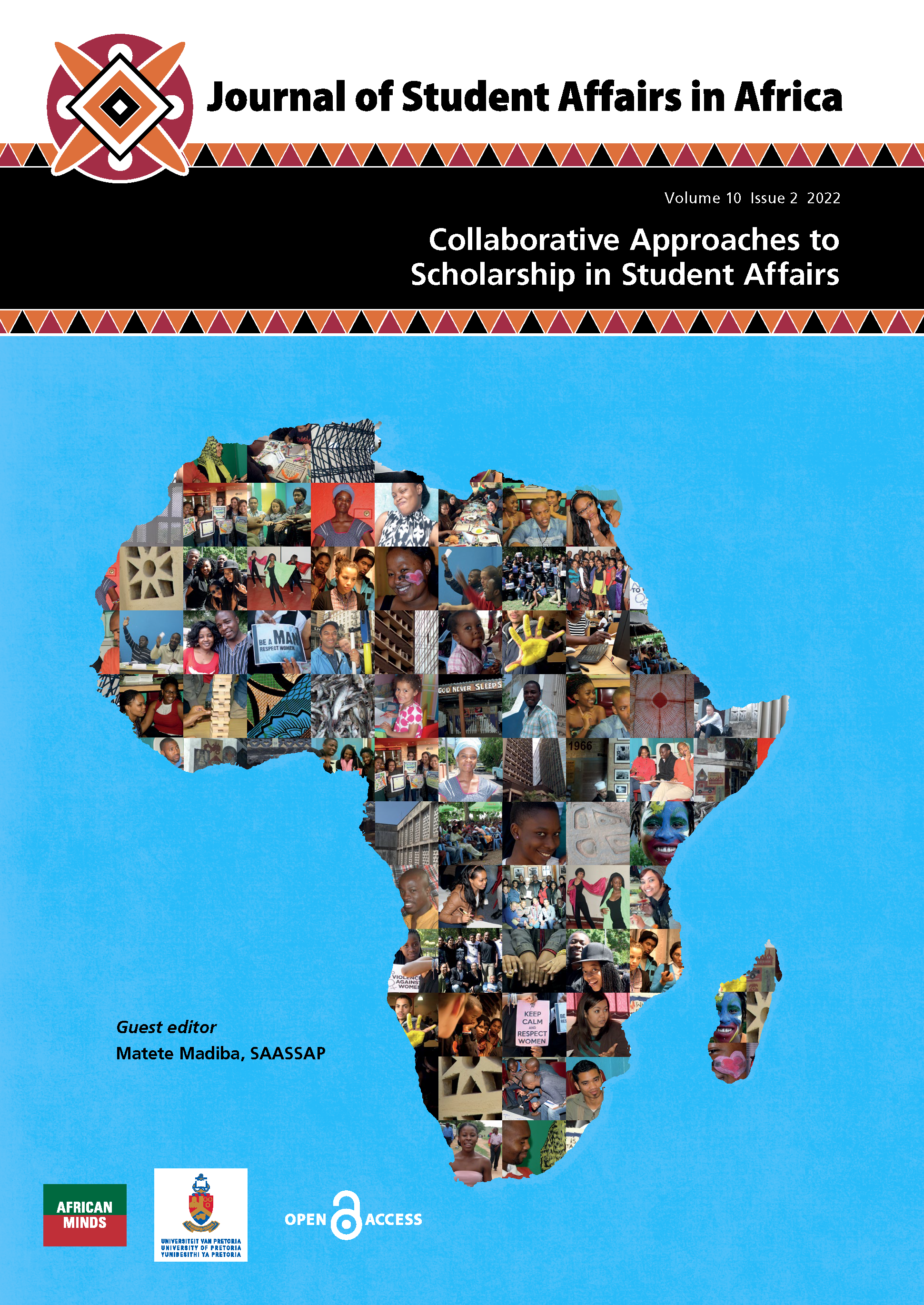Psychometric Properties of a Short Measure for South African First-Year Students’ Perceptions of Fit with their Courses of Study
DOI:
https://doi.org/10.24085/jsaa.v10i2.3939Abstract
The first year of higher education is one of the most critical and challenging times in a student’s life
and choosing a specific course of study can be very difficult. Often, first-year students realize they
have different expectations from the courses of study they chose and perceive that their abilities,
skills, interests, and ambitions for a future career do not match their chosen courses of study. When
the wrong choice has been made, and there is no intervention to choose a course with a more
appropriate fit, students may decide to leave university prematurely, which may have a major impact
on a student’s life. Identifying students who do not experience alignment with their choice of study
course, and offering these students assistance and guidance, is imperative for universities to retain
as many students as possible. Unfortunately, there is a paucity of research on a short scale that
measures student-course fit validly and reliably, and which can be fairly applied to different groups
in an unbiased manner. This study analyses the psychometric properties of a measure of students’
perceptions of fit with their course of study, adapted from a widely used person-job fit scale. Statistical
techniques used to determine the validity and reliability of this scale were structural validity,
differential item functioning to determine item bias, measurement invariance, and reliability.
A quantitative, cross-sectional design was used. A sample (N = 1,211) of South African first-year
university students studying at a university with three different campuses was used. As expected,
confirmatory factor analysis provided evidence of a one-factor structure. No item bias was present
for language and gender groups. Although item bias was present for item 2 between campuses,
the post hoc analysis indicated that the impact was practically negligible. Measurement invariance
was established, as well as good reliability of the scale. The findings of this study can contribute to
knowledge concerning the valid, reliable and fair measurement of first-year students’ perceived fit
with their courses of study. In addition, insights could assist universities in identifying students who
need proper career guidance to better match with their chosen courses of study.
Downloads
Published
Issue
Section
License
Copyright (c) 2022 Reitumetse Machaba, Karina Mostert

This work is licensed under a Creative Commons Attribution-NonCommercial-ShareAlike 4.0 International License.
Authors who publish with this journal agree to the following terms:
Authors retain copyright and grant the journal right of first publication with the work simultaneously licensed under the Creative Commons Attribution Share-alike 4.0 International License that allows others to share the work with an acknowledgement of the work's authorship and initial publication in this journal.
Authors are able to enter into separate, additional contractual arrangements for the non-exclusive distribution of the journal's published version of the work (e.g., post it to an institutional repository or publish it in a book), with an acknowledgement of its initial publication in this journal.
Authors are permitted and encouraged to post their work online (e.g., in institutional repositories or on their website) prior to and during the submission process, as it can lead to productive exchanges, as well as earlier and greater citation of published work (See: The Effect of Open Access).


